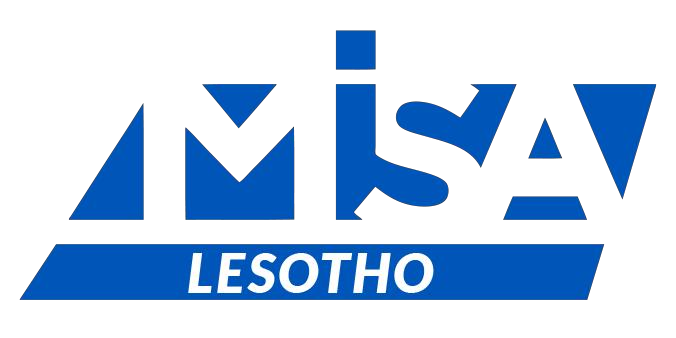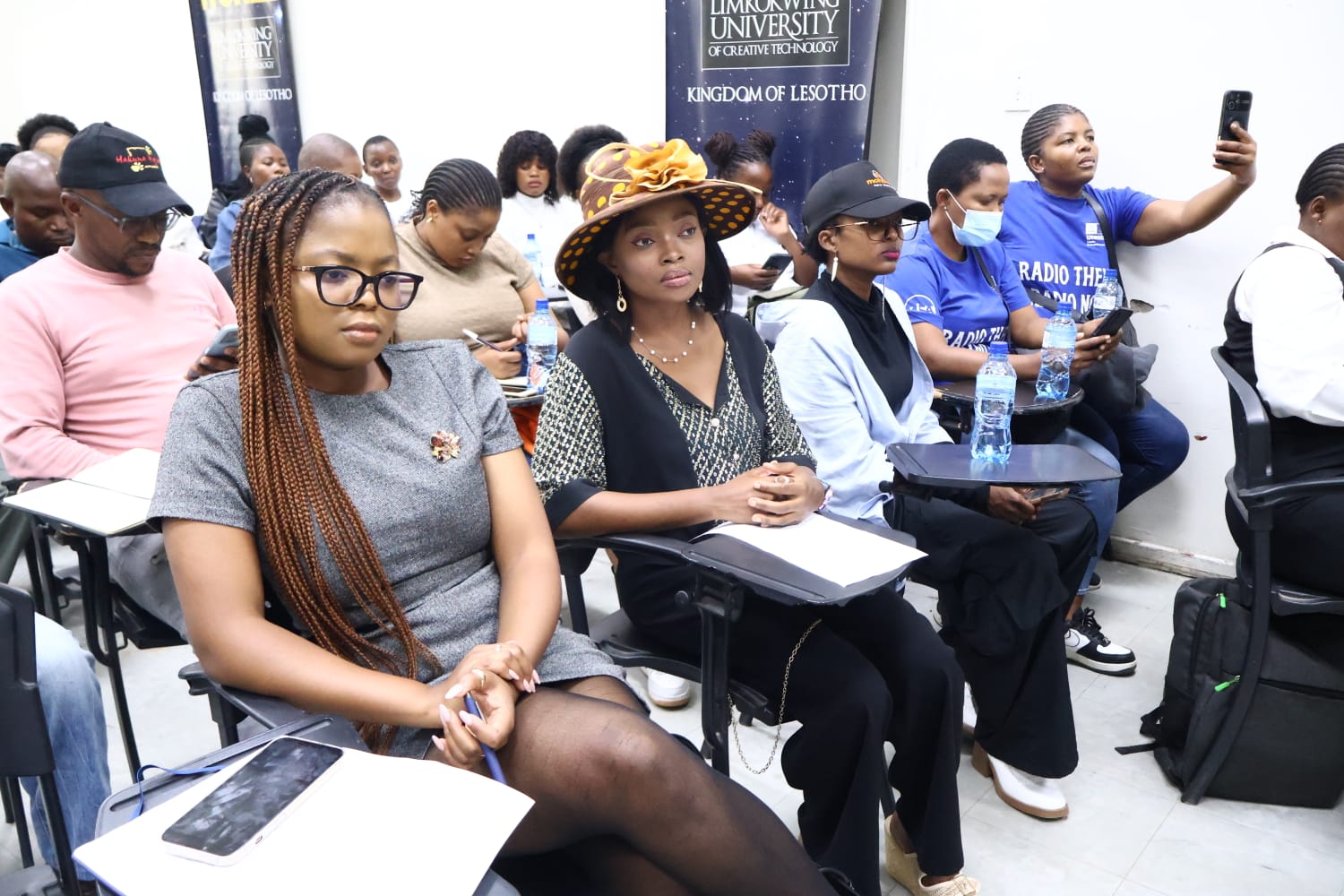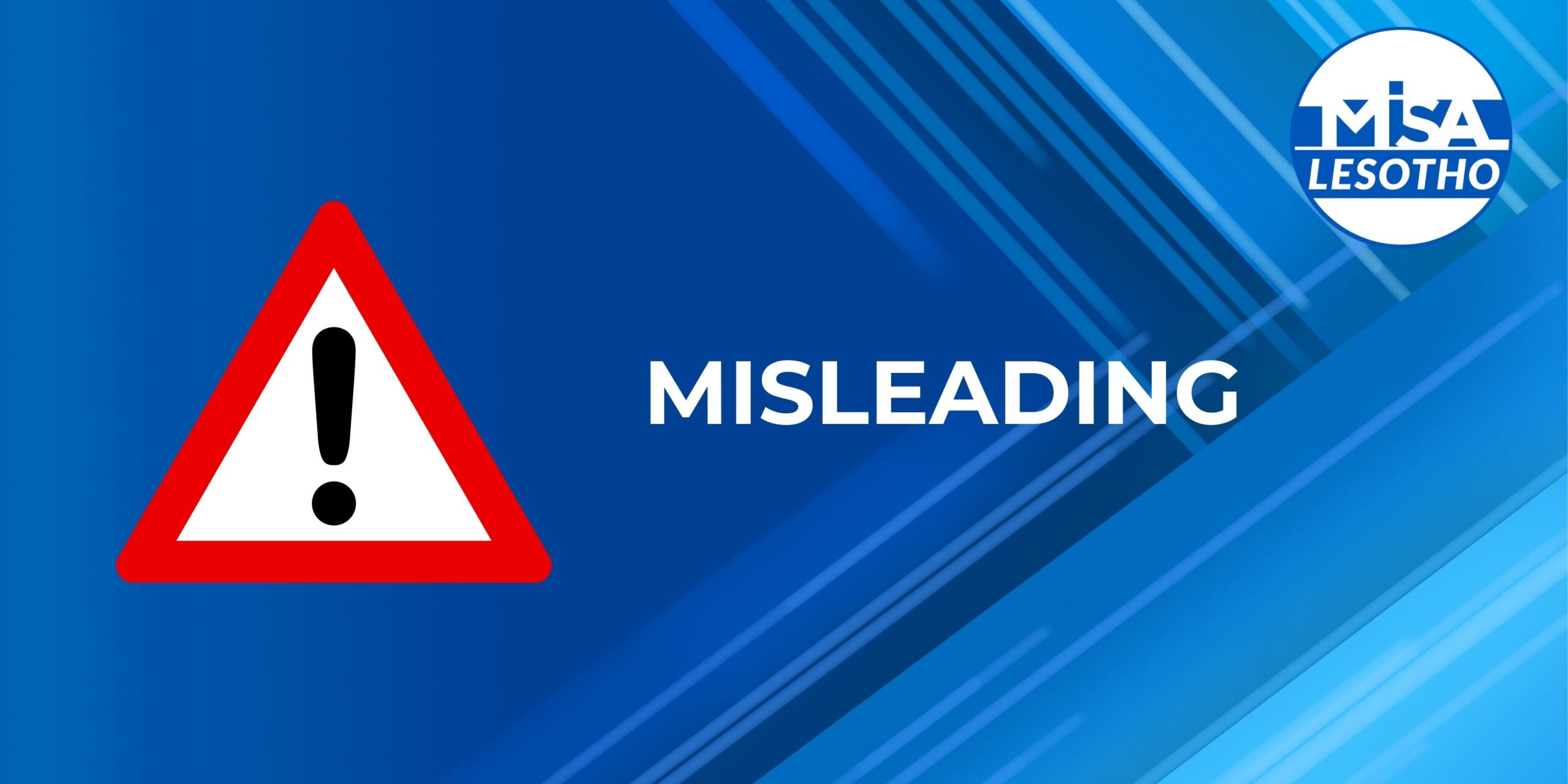The Media Institute of Southern Africa in Lesotho (MISA Lesotho) issues this statement in commemoration of the International Day for Universal Access to Information (IDUAI) 2024.
IDUAI was proclaimed on October 15, 2019, at the 74th United Nations General Assembly to be held on September 28 of every year. Initially, the Day was designated by the UNESCO General Conference. It was inaugurated in November 2015 and was first held on September 28, 2016.
This year’s Global Conference on IDUAI will be hosted by the government of Ghana in collaboration with UNESCO on 1-2 October, under the theme: “Mainstreaming Access to Information and Participation in the Public Sector”.
Lesotho has no law on Access to Information:
Meanwhile, Lesotho has no law on access to information. A bill on access to information was first crafted in 2000, but it has since not seen light of day in parliament.
Under the ongoing national reforms, the now-defunct National Reforms Authority (NRA) had initiated, in 2021, a fresh bill on access to information. We can only hope that the parliament will approve and pass into law the Access to Information Bill of 2021, in due course.
The government of Lesotho has, instead of giving first priority to access to information as a public right and a pillar for a democratic society, introduced the Computer Crime and Cybersecurity Bill of 2021, which grossly restrict access to information.
The advent of a controversial Computer Crime and Cybersecurity Bill that seeks to grossly restrict Access to Information:
The Computer Crime and Cybersecurity Bill was first presented to Parliament by then Minister of Communications, Science and Technology, Honourable Keketso Sello, on March 23rd, 2021. The Bill contains at least seven provisions that intentionally restrict access to information.
MISA Lesotho had, therefore, presented a number of submissions before the Ministers of Communications, Science and Technology, namely Messrs. Sello and Tšoinyana Samuel Rapapa, as well as now the Minister of Information, Communications, Science,Technology and Innovation, Honourable Nthati Moorosi.
MISA Lesotho’s Intervention:
In the submissions, MISA Lesotho has consistently recommended review of provisions that restrict access to information in the Computer Crime and Cybersecurity Bill. MISA Lesotho has further presented same submissions before the National Assembly’s Portfolio Committee on the Prime Minister’s Ministries and Departments, Governance, Foreign Relations and Information, in both the Tenth and Eleventh Parliaments.
In September 2021, the National Assembly dismissed the controversial Computer Crime and Cybersecurity Bill in line with a recommendation by the portfolio committee on the PM’s Ministries and Departments, Governance, Foreign Relations and Information.
The Committee, then chaired by Honourable Lehloka Hlalele (MP), had observed, among others, that the security agencies, namely Lesotho Defence Force, Lesotho Mounted Police Service, National Security Services and Lesotho Correctional Services “were excluded in the formulation of the Computer Crime and Cybersecurity Bill, 2021”. The Committee further made the following observations, that:
- Inclusion of media houses and telecommunications agencies is very crucial in compilation of the Bill;
- All Security Agencies should be an integral part of the cybersecurity management and should be represented in the National Cybersecurity Advisory Council;
- The Bill deals with two major sets of crimes, computer Crimes and crimes of cybersecurity. The two sets of crimes are comprehensive enough to constitute two legal frameworks; and combination of two sets of crimes may lead to a law that is vague and difficult to implement. The latter point was specifically an observation that was made by MISA Lesotho and a recommendation was made by the Institute to the Committee.
Based on these findings, the Committee had since recommended that “the Minister responsible for Communications (Honourable Tšoinyana Samuel Rapapa) be afforded an opportunity to withdraw the said Computer Crime and Cybersecurity Bill, 2021 for the Minister to revisit the Bill”.
We now note with a grave concern that even as the Bill resurfaced and tabled for discussion in the National Assembly this year (2024) by Minister Moorosi, it is almost still in its original form, as it was in 2021.
If enacted in its current form, the controversial Computer Crime and Cybersecurity Bill adds to a raft of archaic, outmoded and repressive laws that restrict access to information in Lesotho.
A raft of old and repressive laws that continue to occupy statute books and restrict Access to Information in Lesotho:
The following is a list of some of the archaic, outmoded and repressive laws that still occupy Lesotho’s statute books. These laws have a chilling effect on access to information. Some of these laws date as far back as a century old:
- The Constitution of Lesotho of 1993, Section 14
- Obscene Publications Proclamation No. 9 of 1912, Sections 2 and 3
- Internal Security Act (General) of 1984, Sections 7 and 9
- Parliamentary Powers and Privileges Act of 1994, Section 6
- Sedition Proclamation No. 44 of 1938
- Official Secrets Act of 1967, Section 3
- Printing and Publications Act of 1967, Section 10
- Criminal Procedure and Evidence Act of 1981 (CP&E), Sections 85 and 173(4)
- High Court Act of 1978, Section 13
- Standing Orders of Parliament No. 90 of 2006
Recommendation:
MISA Lesotho, in conclusion, recommends to the Minister of Information, Communications, Science, Technology and Innovation, and to the parliament, to expedite enactment of the Access to Information Bill of 2021 (as initiated by NRA). The Computer Crime and Cybersecurity Bill, 2024, should not be enacted in the current form. The Bill must be revised in line with submissions made by MISA Lesotho and the Transformation for Resource Center (TRC) before the parliament’s Portfolio Committee in September, 2024.









